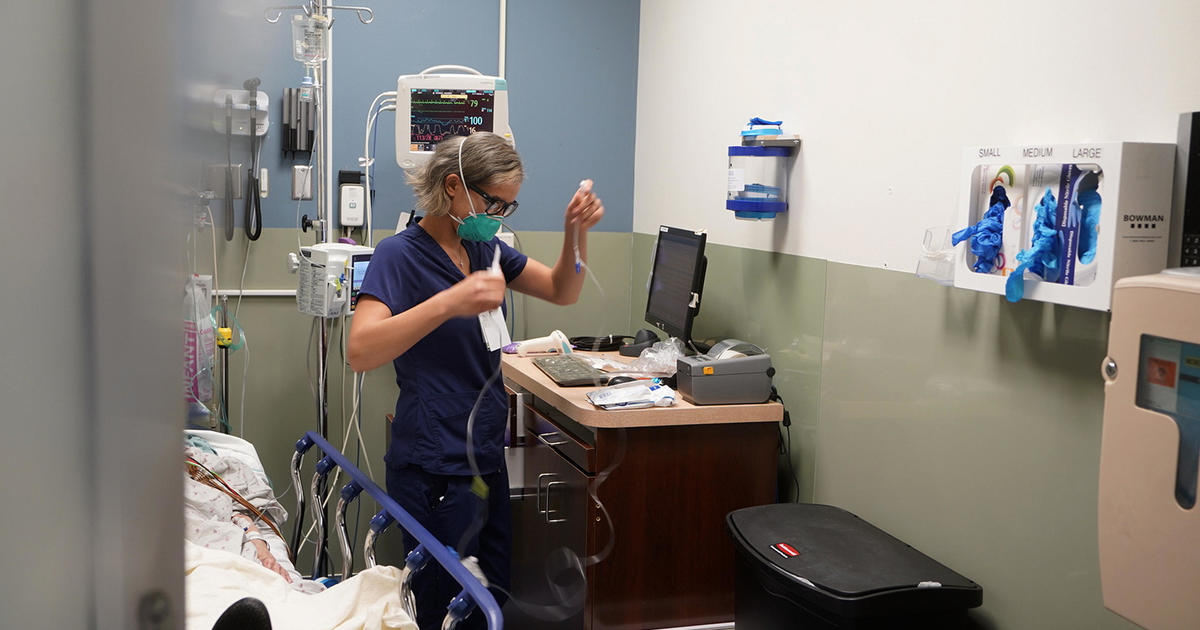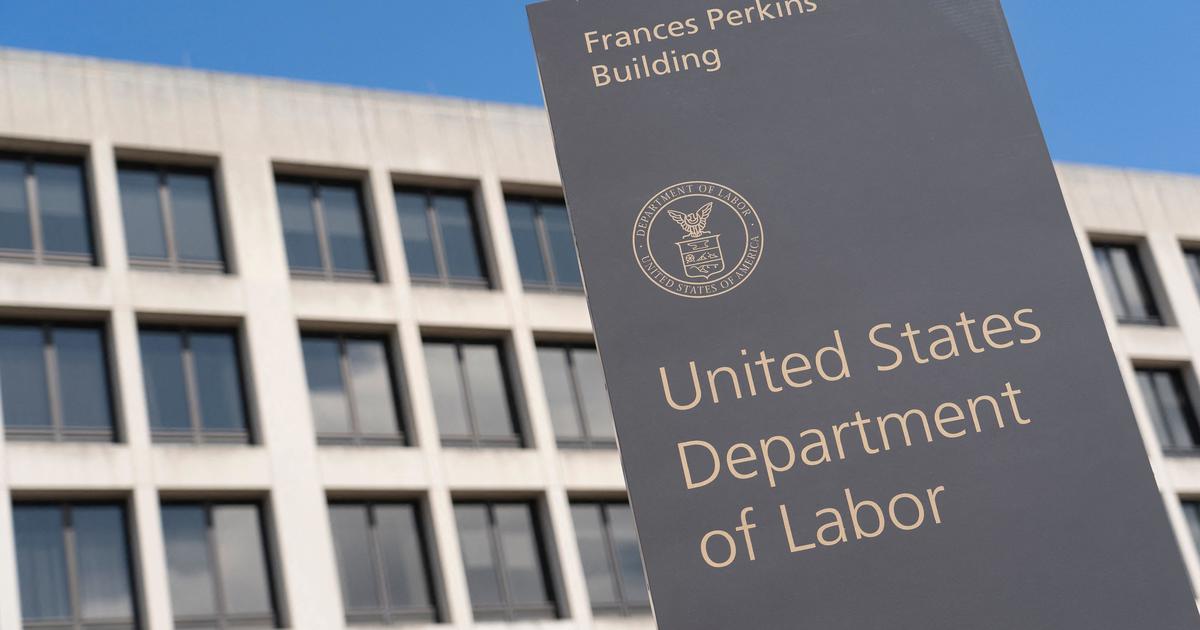CA Whistleblower Audit Finds Sleeping State Employee And More
SACRAMENTO (CBS13) - The California State Auditor released its yearly Whistleblower Act report Tuesday and it found a number of disturbing violations and misuse of taxpayer dollars. The report includes investigations into one DMV employee who slept at her desk for extended periods of time during work hours, a prison worker who regularly left early from work for more than two years, and two groundskeepers who routinely left work for hours at a time.
The 67-page audit covers investigative work done on 1,481 cases from July 1, 2017-June 30, 2018.
Investigators determined 1,018 of the cases lacked sufficient information or are pending preliminary review. Of the remaining 463 cases, 86 resulted in an independent investigation or an investigation being conducted by the involved state agency.
The report focuses on seven examples of "substantiated improper governmental activities, including misuse of state time and inaccurate attendance records, economically wasteful activities, and misuse of government property."
- Department of Motor Vehicles
- California State University, Fresno
- California State University, Dominguez Hills
- California Department of Corrections and Rehabilitation, Kern Valley State Prison
- California Department of Corrections and Rehabilitation
- California Correctional Health Care Services
- California Department of Forestry and Fire Protection (CAL FIRE)
DMV: A key data operator was found to have slept at her desk more than 2,200 hours from February 2014-December 2017. That is the equivalent of 55 40-hour workweeks.
The investigation determined the employee slept at her desk at least three hours every workday. The sleep was documented in her performance evaluations, which state she has been sleeping daily at her desk since February 2014. The employee's supervisor was aware the employee was sleeping, but thought the employee "only missed 20 to 30 minutes of work time daily" even though she woke the employee up 3 to 4 times a day.
The employee is responsible for entering change of address and new vehicle ownership forms and is expected to process an average of 560 documents a day. Her performance evaluations show she processed only about 200 documents daily.
She didn't request a "reasonable accommodation for a medical condition" until June 2016. Her physician eventually notified the DMV the employee could not perform any of the duties of a key data operator. The DMV attempted to find her a new position but couldn't. In November 2016 she was told she could retire, resign, or return to her key data operator position. She did return in January 2017 but continued to sleep at her desk.
After the investigation the DMV found it couldn't proceed with "adverse action" against the employee because previous corrective documents didn't contain the appropriate language necessary. The adverse action was properly documented in March 2018.
The audit recommends taking corrective or disciplinary actions against the employee's supervisors for failing to address her sleeping and performance issues and for failing to inform human resources and legal of the ongoing issues.
The misuse of work time cost the State and taxpayers more than $40,000.
READ ALSO: Dogs Rush To Help When Owners Cry
CSU, Fresno: Two groundskeepers took extended breaks or left campus without accounting for their time from 2013-2017, totaling 5,100 hours of work.
One of the employees regularly missed two hours of work each day by driving off campus, or sitting in his personal car or campus buildings during work hours. His shift was scheduled to start an hour before the other groundskeepers, but they noticed his work was routinely not done before they arrived.
Surveillance was done on him for three days and determined he likely missed at least two hours of work time every day for at least five years.
The other employee was found to have left campus for at least three hours a day. Witnesses say she would often leave campus with a relative, who also worked at the school, for "hours at a time during work hours." One witness estimated she worked only about a day and a half of a five-day workweek and would often leave work unfinished.
Surveillance was done for three days and found she missed four, five, and seven hours of work, respectively, either because she arrived to work late or left campus with her relative. The day she missed seven hours of work the "investigator observed her shopping at four different locations." It was determined she likely missed at least three hours of work a day for at least five years.
The unaccounted time cost the State and taxpayers more than $111,000 in salary paid for work not performed. The investigation found "the employees were dishonest in their attempts to conceal their time and attendance abuse." The groundskeepers have worked at Fresno State for more than 20 years.
In response to the audit the employees are now required to report to a lead employee who checks their work. Fresno State also suspended both employees for 12-weeks unpaid. Fresno State also investigated the relative who also routinely left campus and suspended that person for 12-weeks unpaid. Fresno State is also exploring its legal options for recovering the money it paid the employees for time they did not work.
CSU, Dominguez Hills: A manager directed a staff member to purchase a Nissan-manufactured electric vehicle quick charger before doing due diligence to make sure the charger was compatible with the campus energy resource plan.
The charger can only be used on three vehicles: Nissan Leaf, Kia Soul EV, and Mitsubishi i-Miev.
At the time of the purchase in 2013, CSU Dominguez Hills was implementing a master plan to install EV charging stations on campus, along with other sustainable energy technologies.
The manager heard about an incentive program offered through Nissan at a discount and emailed an employee. "Let's get one before I change my mind." He didn't first check to make sure it could be used on campus. When the master plan was finalized, the plan didn't include the quick charger and the parking lot where the other EV chargers were being installed didn't have the electrical infrastructure.
The $7,000 charger wasn't used for five years, and was stored outdoors in an unsecured location. It has since been moved.
The warranty lapsed in 2014. CSU Dominguez Hills told investigators it won't be able to install the charger before 2020 or 21, if at all.
CDCR, Kent Valley State Prison: An hourly employee regularly left work up to 45 minutes early for an estimated two years due to inadequate supervision.
His supervisor's shift ended an hour before the employee's. In that time, the other employees use the final 15 minutes of their shift to lock up and turn in their keys; however, the audit determined the employee often left earlier and failed to account for 312 hours of work time, costing the State and taxpayers nearly $9,000.
Since the audit was conducted the employee has been served with a counseling letter and all employees must now use an accountability sign-in log.
CDCR: A staff services analyst was overpaid nearly $3,000 from July 2016-March 2017 due to a failure to follow CDCR and Human Resources' policy.
The employee had worked as an office technician and received inmate supervision pay in that role. Part of her duties were to supervise inmates as they performed their work duties and she received an additional $190 per month. When she was promoted to analyst in July 2015, she no longer was qualified to get inmate supervision pay. However, due to a lack of employees, she started supervising inmates again in July 2016 and CDCR improperly paid her at an increased rate of $325 a month in inmate supervision pay until March 2017. Neither she, her manager, an associate warden, nor a personnel specialist followed the CalHR policy so they didn't recognize the pay error.
An internal audit in 2017 revealed the overpayment. A personnel specialist outlined repayment options with the analyst, but the associate warden decided to not collect the money- which is a violation of state law. Since this investigation, a repayment plan has been set up.
This is not the first time the issue has come up. The report states: "based on our past investigations and on audits conducted by the State Controller's Office, we determined that CDCR has an ongoing, systematic problem with improperly paying employees inmate supervision pay." The first happened in October 2008 when nine employees were paid a total of $16,530. The second came in November 2009 and involved 23 employees receiving $34,512. Last year, in March, an audit found one employee was erroneously paid $2,520. A separate investigation by the State Controller's Office in 2014 found 53 employees received $78,315 in inmate supervision pay they weren't eligible to get.
ALSO: Yelp Will Roll Out Restaurant Hygiene Scores in the US
CA Correctional Health Care Services: A licensed vocational nurse at a Southern California adult prison was moved from her assigned nursing position as a patient care provider into a scheduling position, but continued to receive her pay as a nurse instead of an office technician.
The move was initiated by a director of nursing, who was the LVN's personal friend.
The LVN did provide patient care during occasional overtime shifts.
Despite the investigation, Correctional Health Care said it was "still determining whether to implement" the recommendations, which included making sure the LVN provides patient care, removes her access to the scheduling software, and utilizes appropriate administrative staff to schedule. Further investigation revealed the prison CEO shared the confidential report with the subjects of the investigation, and allowed them to help craft the response. One of the witnesses in the initial investigation was also told to reveal what she told investigators, which is a violation of state law.
The investigation found California Correctional Health Care Services made $10,500 in unnecessary salary payments, and the State and taxpayers made $18,700 in unnecessary overtime payments to other nurses who had to cover the LVN's assigned duties.
CAL FIRE: An assistant chief built an unauthorized structure on state property using on-duty staff under his command.
The employee has rented a state residence from CAL FIRE since 2014 and built the 16-foot-by-20 foot structure in the backyard in 2016.

It had plumbing, electrical, and sewer connections, but he did not get permission from CAL FIRE, or the Office of the State Fire Marshal.
Two CAL FIRE employees told investigators they felt obligated to help him build the structure on state time due to his rank.
As a result of the investigation CAL FIRE ordered the assistant chief to remove the structure or face eviction. He removed the structure in December 2017.
CAL FIRE also suspended the assistant chief for 30-days unpaid. His unit chief was also given a letter of warning for not being fully in control of his direct reports.
The report was generated through the California Whistleblower Act. California activated its whistleblower hotline in 1993 and has identified more than $577 million in improper governmental activities.
In the 25 years of the Act, it's led to 12 convictions, 22 demotions, 88 job terminations, at least 27 resignations or retirements during the investigation (statistic not kept until 2007), 58 pay reductions, 340 reprimands, and 32 suspensions without pay.
reports can be made by calling 800-952-5665, by mail, or online.



